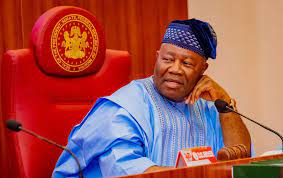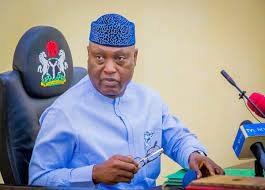The CDD Election Analysis Centre (CDD-EAC) says it observed abuse of the power of incumbency for unfair partisan party-political electoral advantage by the governing parties during the off-cycle governorship polls in Kogi, Bayelsa and Imo.
According to the member, CDD-EAC , Mufuliat Fijabi, while briefing newsmen on the conduct and outcome of the November 11, 2023 Off-Cycle Elections said the abuse of incumbency takes the following forms – unequal access of opposition parties to state electronic media, the deployment of state resources amongst others.
She said all these remain major fetters on the conduct of the three off-cycle elections that satisfied the conditions for electoral integrity.
She further said the abuse of the power of incumbency was also deployed to distort the party primary process of the governing parties in two of the three states, Bayelsa and Imo where the incumbent Governors sought re-election for a final second term; and in the third state Kogi where the incumbent Governor, unable to seek re-election because he was serving out his final non-renewable second-term used the full panoply of state power and resources to ensure the victory of his preferred candidate during the ruling party’s primary elections.
She said the impact of the abuse of the power of incumbency, so illustrated, created an unfair level playing ground that gravely diminished the credibility of the off-cycle elections in the three states.
“The politics of Identity featured in the off-cycle elections in the three states in the nomination process for the governorship candidates of the political parties. Identity as a factor in the elections assumed different forms. In one sense Identity assumed the form of the ethnic configuration in the three states.
“In Kogi State, for example, while the retiring incumbent governor ensured not only that the ruling party nominated a candidate from his ethnic group in the state, the other major parties chose candidates from other ethnic groups, hoping to cash in on the claim that the next governor must come from their own ethnic groups.
“Another form identity played out was as geographical or zonal Identity. In Bayelsa State, for example, the APC campaigned on the claim that the Eastern Zone of the State should produce the next Governor. In Imo State, the PDP based its campaign on the Governorship returning to the Owerri Zone, on equity grounds, while LP staked a claim for the Okigwe Zone.
“This particular form of identity politics as geographical identity or zoning draws on the federal character clauses of Nigeria’s 1999 Constitution. Another version of the identity politics is the gender consideration that influenced the choice of female deputy governorship candidates by the APC candidate for Governor in Imo State and PDP in Kogi States.
“The challenge of identity politics when it is used to mobilise political support is the tendency for it to descend into ethnic profiling, ethnic hate speech and the tendency for the political mobilisation of ethnicity to descend into violent ethnopolitical conflict,” she said.




